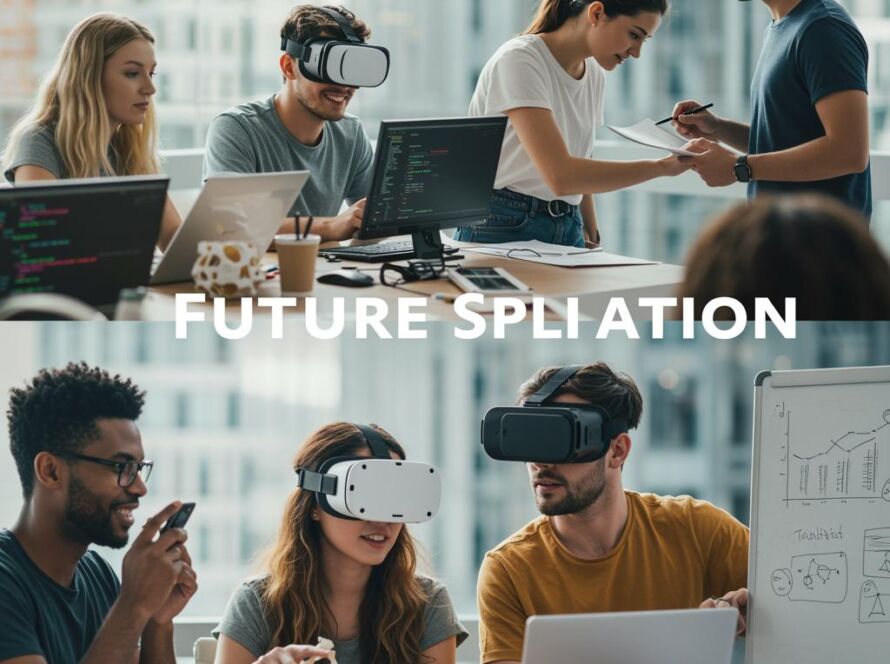AI Curriculum Generator: Build Engaging Lessons Fast
AI Educational Curriculum Generator: Revolutionizing Learning Design
The education sector is undergoing a significant transformation, driven by advancements in artificial intelligence. One remarkable innovation is the emergence of AI-powered educational curriculum generators. These tools promise to streamline the curriculum design process, personalize learning experiences, and ultimately improve educational outcomes. This blog post explores the capabilities, benefits, and potential impact of AI educational curriculum generators.
What is an AI Educational Curriculum Generator?
An AI educational curriculum generator is a software application that leverages artificial intelligence algorithms to create, adapt, and optimize educational curricula. These tools can analyze vast amounts of data, including learning objectives, student performance data, and existing educational resources, to generate customized learning pathways and suggest relevant learning materials.
Key Benefits of Using AI Curriculum Generators
Reduced workload for educators
Creating a comprehensive curriculum is a time-consuming task. AI curriculum generators can automate many aspects of this process, freeing up educators to focus on other essential responsibilities like teaching and student interaction.
Personalized learning experiences
AI algorithms can analyze student data to identify individual learning styles, strengths, and weaknesses. This information allows the generator to create personalized learning paths, recommending tailored resources and activities that cater to each student’s specific needs.
Data-driven insights and optimization
AI curriculum generators can track student progress and performance, providing valuable data-driven insights into the effectiveness of the curriculum. This data can be used to identify areas for improvement and optimize the curriculum for better learning outcomes.
Enhanced accessibility and inclusivity
AI can help create curricula that cater to diverse learning needs, including those of students with disabilities. By providing personalized support and adapting learning materials, AI can promote inclusivity and ensure that all students have equal access to quality education.
How AI Curriculum Generators Work
AI curriculum generators utilize a variety of techniques, including natural language processing (NLP), machine learning (ML), and deep learning. Here’s a simplified overview of the process:
- Inputting Learning Objectives: Educators define the desired learning outcomes and provide input on the target audience.
- Data Analysis: The AI analyzes existing educational resources, learning standards, and student performance data.
- Curriculum Generation: The AI generates a curriculum outline, including suggested learning activities, assessments, and resources.
- Personalization and Adaptation: Based on student data, the AI can personalize the curriculum, recommending specific learning paths and materials.
- Iteration and Refinement: The curriculum can be further refined and optimized based on feedback and performance data.
Choosing the Right AI Curriculum Generator
Selecting the appropriate AI curriculum generator depends on specific needs and priorities. Consider the following factors:
- Subject matter coverage: Does the generator specialize in particular subjects or offer a broad range of disciplines?
- Integration with existing systems: Can the generator seamlessly integrate with your learning management system (LMS) and other educational tools?
- Customization options: How much control do you have over the curriculum generation process and the level of personalization?
- Data privacy and security: Ensure the generator complies with relevant data privacy regulations and protects student information.
The Future of AI in Curriculum Design
AI-powered curriculum generators are still a relatively new technology, but their potential to revolutionize education is undeniable. As AI algorithms become more sophisticated and data availability increases, we can expect even more personalized, adaptive, and effective learning experiences. The future of curriculum design will likely involve a collaborative partnership between educators and AI, combining human expertise with the power of intelligent automation.
By embracing these advancements and carefully considering the ethical implications, we can leverage the potential of AI to create a more engaging, equitable, and effective learning environment for all students.



